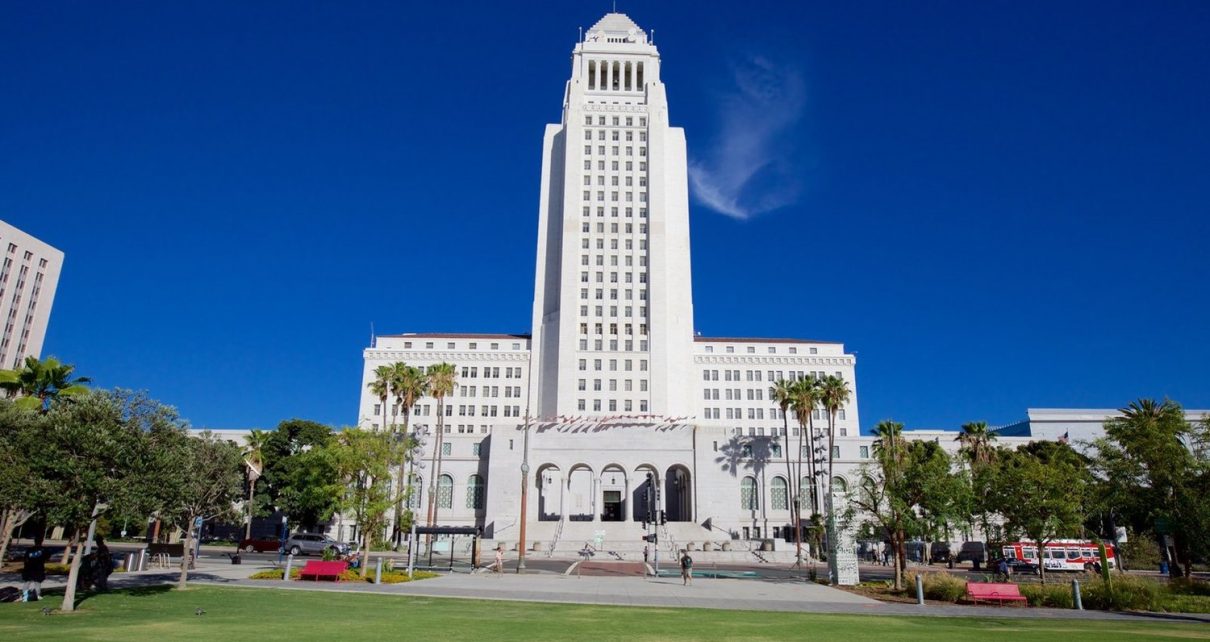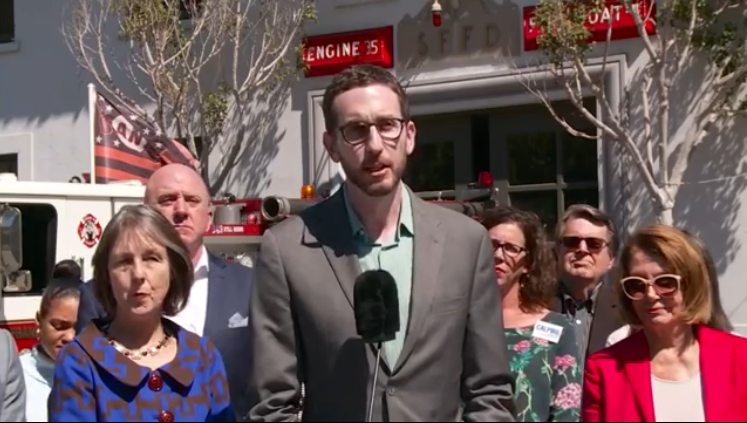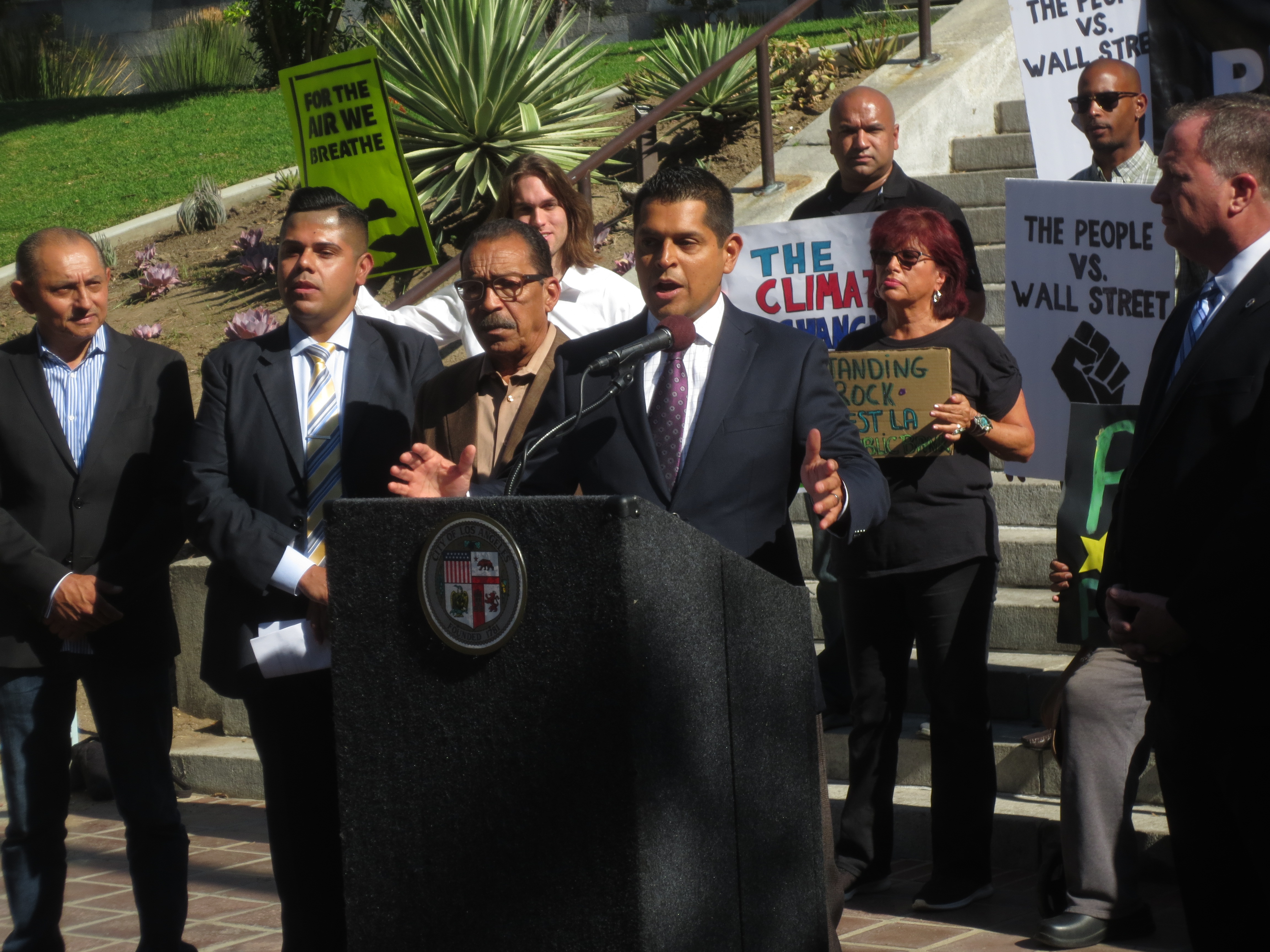
Los Angeles City Hall. (Photo: City of Los Angeles)
Rethinking Tax Policies: The Impact on L.A.’s Real Estate and Financial Sectors
A countermeasure to ULA, the TPA represents a broader demand for fiscal responsibility
By Aidan Chao, February 15, 2024 2:57 pm
In Los Angeles, a city sprawling over 500 square miles and home to 3.85 million people, things are not easy for businesses. Recent events like rising interest rates, growing costs from inflation, and a slowing economy have put the local real estate and financial sectors under unprecedented strain.
With approximately 99,000 businesses operating in an environment where a $70k salary still places you below the poverty line, the pressures are daunting.
Unfortunately, the city’s tax policies, particularly the United to House Los Angeles (ULA) measure, have only exacerbated these challenges.
Measure ULA, effective since April 2023, introduced a hefty documentary transfer tax on real estate transactions over $5 million. Sold to voters as a way to exclusively target high-end properties, its consequences have rippled across all sectors—commercial, retail, industrial, and housing—dampening sales, deterring investments, and contributing to economic instability.
Many parts of the local real market, especially for apartments and business properties have been ground to a standstill as few developers can make projects financially viable in light of ULA’s huge tax increase.
Long-term, that’s very bad for residents looking for a place to rent and businesses looking to continue operating in the city.
It’s important to understand that ULA is not an isolated burden, but part of a cumulative tax landscape that chips away at disposable incomes, hinders business growth, and deepens the affordability crisis in a state already notorious for its high living costs.
Against this backdrop, the Taxpayer Protection and Government Accountability Act (TPA), a statewide initiative set for the November ballot, emerges as a critical intervention for Los Angeles’ troubles—particularly for undoing the damage done by Measure ULA. ULA was passed using a legal loophole that makes it easier for special interests to pass local taxes that benefit themselves. The Taxpayer Protection Act closes this loophole in a stride towards transparency and accountability in tax spending.
If TPA passes, then Measure ULA will need to go back before local voters and this time they will have the benefit of knowing how damaging ULA has been. A countermeasure to ULA, the TPA represents a broader demand for fiscal responsibility and a check against Los Angeles’s history of unchecked tax hikes.
For lenders and real estate professionals, the TPA signals a potential shift towards a more balanced and sustainable economic environment where special interests cannot use local tax ordinances to unfairly impose burdens that hurt the broader community. The demand for clarity and accountability in tax spending could foster a more stable and predictable market, conducive to both large-scale projects and smaller, community-based developments.
Beyond just a solution to the overreach of the ULA, the Taxpayer Protection Act signals a shift in perspective and a call for a more fair and transparent tax system in California. It addresses the growing ‘tax fatigue’ where Californians pay more and more in taxes with little to show in return while offering hope for a more equitable fiscal future. TPA would allow voters to make the final decision on all state and local taxes so every tax increase has broad community buy-in.
While Los Angeles businesses seem ready for a move to fiscal moderation, are Los Angeles voters ready for that shift? We will find out when they go to the polls this November. In the meantime, members of the business community, as stakeholders in one of the nation’s most dynamic urban landscapes, have an imperative to challenge policies that stifle growth and advocate for those that promise a more balanced, sustainable future.
- LA County Taxpayers Association Launches Campaign to Defeat County Sales Tax Hike - February 10, 2026
- AB 84: Targeting Charter Schools While Ignoring Millions in District Fraud - August 16, 2025
- Los Angeles Faces Budget Cuts, Layoffs and Interest Borrowing Due to Extraordinary Lawsuit Payouts - July 8, 2025





With the criminal Democrat mafia in almost complete control of LA via voter fraud and rigged voting machines, can LA voters ever hope to vote their way out and rein in high taxes?
Higher property taxes is not the answer because they mismanage spending all the time for everything. Need better leadership to keep the city and adjacent counties in high demand. Weather will eventually not be as attractive with homelessness spreading more and more. Home values will start to decrease (https://www.loanshoppers.net) causing people to leave. Lower taxes means less revenue and even worse mismanagement. The spiral just exacerbates.